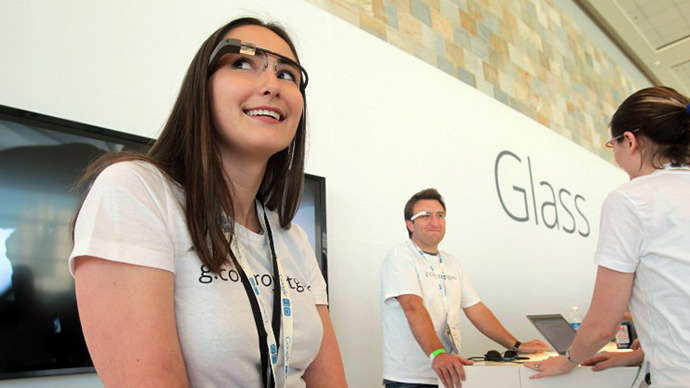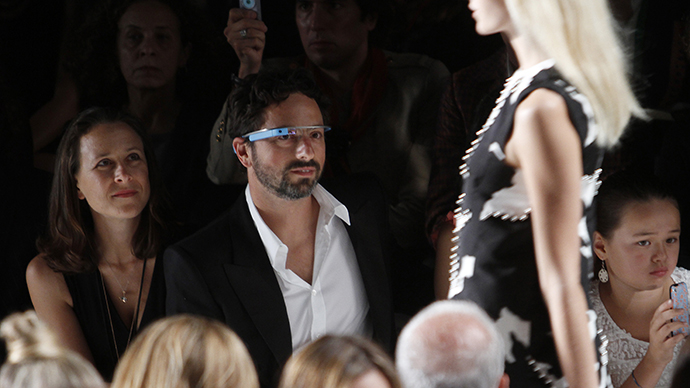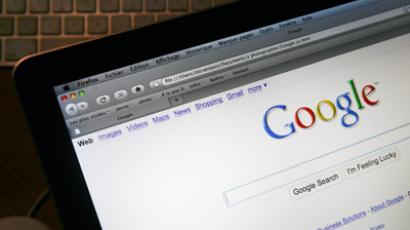Spotting ‘fashion fingerprints’: Google Glass app helps locate friends

New Google Glass app InSight takes the experience of spotting your friends to the next level, as it recognizes your peers by their clothes and accessories – matching specific color patterns and textures to the user.
This new human recognition software makes it impossible to lose your friends in a packed place, such as an airport, concert hall or shopping center.
The app creates a ‘fashion fingerprint’ for every friend based on the outfit they are wearing including clothes, jewelry, glasses, etc.
‘Fashion fingerprint’ is generated by snapping pictures of the user and creating a file of that image called a ‘spatiogram’, which calculates patterns and spatial distribution of colors on the user and analyzes the information to identify that particular person later on in the distance or from a different angle.
The new system is being partly funded by Google and was presented at the HotMobile technology conference last week, while currently still being developed by the Duke University in North Carolina.
So far the app has been tested by 15 volunteers and managed to identify people correctly 93 per cent of the time.
The software does not use facial recognition systems to locate individuals since it is unlikely that the users will be looking straight into the Google Glass’ camera, InSight developer Srihari Nelakuditi told New Scientist.
He also noted that the ‘fashion fingerprint’ lasts only as long as the user does not change clothes. Afterwards, a new snapshot must be made and a new ‘fingerprint’ created. Thus, for privacy protection, all the user has to do is change outfits, argues Nelakuditi.

Google Glass is a new wearable computer with a head-mounted display. It displays information in a smartphone-like format hands-free and can interact with the internet via natural language voice commands.
The new product does raise new privacy issues, especially considering that users will be able to video record everything through Google Glass without being noticed by others.
Australian Senator Cory Bernardi believes that Google Glass will be “the end of privacy as we know it” because the device can be used for massive surveillance, The Register quoted him as saying.
“A single Google Glass wearer in your favorite restaurant could capture your image and your conversation without you ever knowing,” argues Bernardi. “The footage would be stored on the Google servers, your voice could be translated into text and with the use of facial recognition, could be actually matched to your Google profile.”
Google also has been facing a row of privacy battles in EU and US for its current products.
Just last month European data protection agencies said they intend to crack down on the US internet giant Google before summer after it allegedly failed to follow their orders to comply with EU privacy laws.
Previously, the data protection agencies warned Google that its new confidentiality policy was not in line with EU laws. The regulators included a list of 12 "practical recommendations" which would bring Google’s privacy policy and data collection up to standard. The advisory centers on the firm’s automatic collection of personal data, ranging from browsing histories, to real-time location, to credit card details.
Since January, Google has also been embroiled in its biggest privacy battle yet in the UK over reportedly tracking users’ online habits. At least 10 UK citizens began legal action with dozens more lining up. According to media estimates up to 10 million Britons could join in.
Google is accused of evading security settings on Apple’s devices and Safari’s web browser in order to keep tabs on people’s online preferences.














